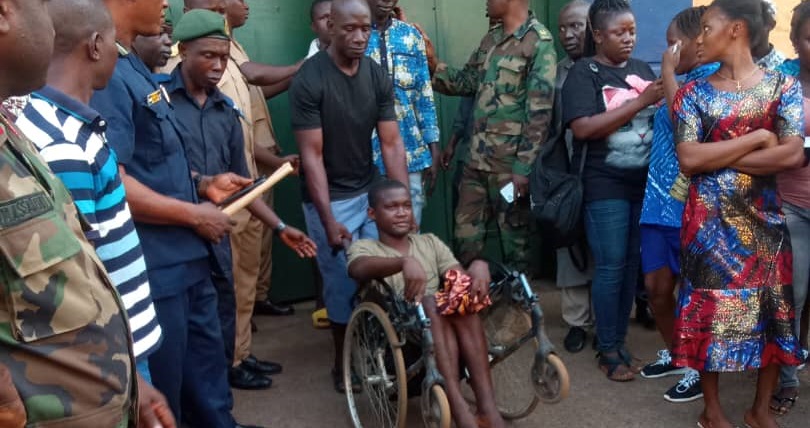Alusine Kamara’s release from Pademba Road prison on January 1st, 2024, should have been a joyous occasion. Freed under the President’s New Year’s pardon, he had spent eight years incarcerated for conspiracy charges. Instead, his joy was tinged with the harsh reality of his of his newfound disability.
Unable to walk, Kamara emerged from the prison gates glued to a wheelchair. His eight years behind bars had taken a brutal toll on his health, leaving him with a disability that makes even basic movement a challenge.
“I was a complete human, but today I am unable to walk,” Kamara said, speaking from his wheelchair. “But thanks to God Almighty, I am now a free man. I pray to get back on my feet, because with freedom I will be able to seek for a better medication.”
Kamara’s story raises troubling questions about the conditions in Sierra Leone’s prisons and the long-term impact they can have on inmates’ health. He claims his paralysis began after five years of incarceration, coinciding with reports of a nervous breakdown he suffered while behind bars.

Despite the physical and emotional burden he carries, Kamara remains hopeful. He expresses gratitude for the President’s pardon and the prospect of seeking better medical care outside prison walls. His story serves as a stark reminder of the human cost of incarceration, particularly for those whose health suffers within the confines of the system.
The mass pardon on New Year’s Day saw 352 inmates released across Sierra Leone, including high-profile musician Alhaji Amadu Bah (Boss La). While Kamara’s case highlights the potential downsides of long-term incarceration, the broader context of the pardons offers a glimmer of hope for rehabilitation and reintegration into society.
It remains to be seen whether Kamara will find the medical support he needs to regain his mobility. However, his story stands as a powerful testament to the enduring human spirit and the yearning for freedom, even in the face of immense physical and emotional adversity.



 3 Comments
3 Comments









Comment(s)
Disclaimer: Comments expressed here do not reflect the opinions of Sierraloaded or any employee thereof.